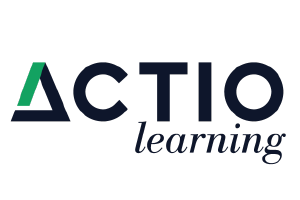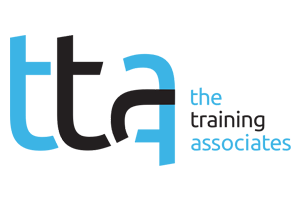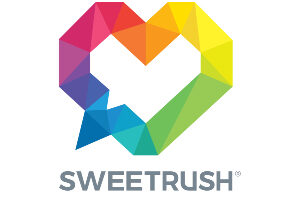Editor’s note: As we ended a difficult and unique year and entered a new one, the Training Industry editorial team asked learning leaders to write in with their reflections on 2020 and predictions for 2021. This series, “What’s Changed and What Hasn’t?: Taking Stock of 2020 and Planning for 2021,” is the result. Plus, don’t miss our infographic, “5 Tips for Turning 2020 Disarray Into 2021 Direction: Insights From Learning Leaders,” which shares insights from the series.
2020 was a year of intense change. Like many businesses, public relations and communications consultancy Man Bites Dog faced the challenge of making the overnight switch to remote working. Although we’ve missed seeing each other face to face, we have worked hard to deliver some of the most valued aspects of the office to employees at home.
Placing a focus on learning and development (L&D) has helped us avoid the monotony of working from home and maintain a happy and motivated workforce. Rather than just treading water until we can return to the office, we’ve tried to introduce new practices that we can continue once we’re back in the workspace:
A Focus on Holistic Well-being
We’ve seen well-being gradually rising up the corporate agenda, but the events of last year highlighted the importance of providing holistic care for our people. Rather than just meeting employees’ basic remote working requirements, it has been important for companies to consider what we can do to make sure workers feel connected and fulfilled during this turbulent time.
A large part of this process is making sure that employees are prioritizing their mental and physical well-being and incorporating self-care into their busy schedules. At Man Bites Dog, we introduced regular workout mornings, putting an hour of exercise time on everyone’s agenda every other week to encourage a healthy and positive start to the day. We also organized a desk Pilates session to help combat the aches and pains that can occur from home working setups.
We also held our first virtual health and happiness day, encouraging employees to step back from their work and focus on their well-being. We began by delivering mystery parcels to the door of each of our employees the night before, containing a schedule for the day’s activities as well as a selection of pamper products and food. This package enhanced the experience and ensured it wasn’t just virtual, as we knew we’d all be eating the same thing at the same time, even if we couldn’t have lunch together.
The virtual health and happiness day itself began with two hours set aside for exercise. That time was followed by a variety of group sessions, including a meditation class; a workshop to brainstorm ways of staying connected while working remotely; and a session from our chief executive officer, Claire Mason, to discuss our achievements as a company over the last year. The day was successful and something we plan to repeat — hopefully in person — next year.
Social and team-building events are central to our culture at Man Bites Dog. Although we’ve had to adjust our approach, we have worked hard to maintain these events. Companies have faced the challenge of keeping teams connected while combatting “Zoom fatigue.” We’ve found that small things, such as scheduling virtual catch-ups and encouraging team members to share their lockdown projects (featuring a lot of baking, some successful and some not quite so successful), have been valuable in boosting morale.
With the world still social distancing, keeping in touch is more important than ever. It can be difficult to replicate the “watercooler conversations” that are so key to office life, but we’ve found that it works best to have a topic to anchor discussion. With that goal in mind, we started a lunchtime culture club in which co-workers come together virtually to discuss books, films, recipes and other items and activities they’ve been enjoying. This approach provides a focus for conversation and gives us all more to watch and do in our ample free time.
L&D Drive
Training, upskilling and keeping in touch are more important than ever right now, especially for newer workers who aren’t in the office to learn from their co-workers. But they’re also more challenging than ever. Businesses have had to reshape their training programs, implementing innovative approaches to equip a distributed workforce with the skills they need.
In the absence of osmosis learning, proactive knowledge-sharing is key. At Man Bites Dog, we have begun scheduling weekly bite-sized training sessions, encouraging members of the team to share their expertise within different areas of business operations. We also encourage employees to regularly attend webinars and virtual conferences and report back with key lessons learned. Although attending online events has taken some getting used to, these opportunities are valuable for gaining new insights and building relationships.
Now, more than ever, we must invest in the talent we have. With remote work comes an increasing amount of competition for skilled talent — and, for many companies, budgets are tight. A 2020 survey by the Chartered Institute of Personnel and Development (CIPD) revealed that almost two in five organizations anticipate a reduction in their talent management budgets this year.
As the digital revolution continues to pick up pace, the skills we need are changing. A world of artificial intelligence (AI) and automation isn’t so far away, and it will be crucial to carry out regular training to address emerging technical skills gaps. However, development programs shouldn’t reduce their focus on soft skills; communication and teamwork capabilities will be equally, if not more, important to collaborate and build relationships in a digital world.
Nurturing a Culture of Care in 2021
It is important for businesses to catch their breath and take stock in order to grow better over the course of this year and beyond.
With the workplace in a state of flux, business leaders must invest in the well-being and development of their workforce. Many things changed last year, but one thing hasn’t: Our people are our most valuable resource, and the employers that show that they care will prosper in our ever-changing world.






